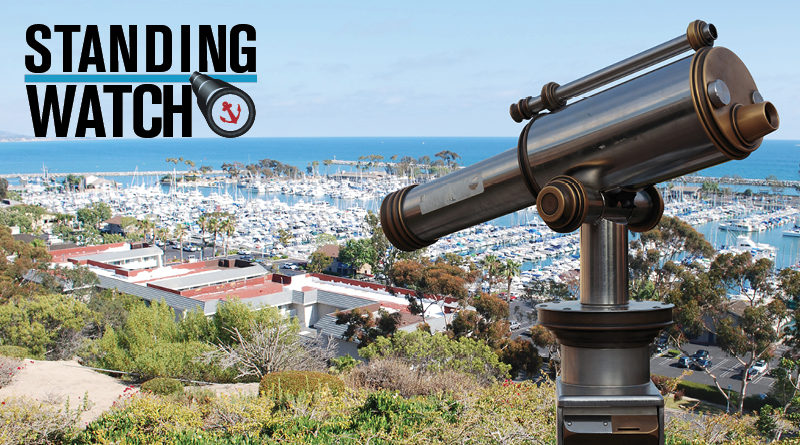California hopes to conserve state and ocean waters
Assembly Bill 3030 would require 30 percent of state and ocean waters to protected as a climate crisis policy.
SACRAMENTO—California legislators are considering a proposal to protect the state’s biodiversity, but at least one group of outdoors enthusiasts don’t seem to be thrilled about a bill calling for the conservation of marine life in at least 30 percent of local and ocean waters.
Assembly member Ash Kalra (D-San Jose) introduced Assembly Bill 3030 in February and proposed for California to establish several conservation goals by 2030. Those goals: protect at least 30 percent of land areas and waters within California; protect at least 30 percent of waters off the coast of California; and, support efforts to protect at least 30 percent of the world’s land areas, waters and oceans.
“California faces a … biodiversity and climate crisis, with nature in a steep decline and greenhouse gas emissions not declining at the rate scientists say is needed in the United States and worldwide,” the language of AB 3030 stated. “Scientists are documenting a rapid loss of natural areas and wildlife in California, the United States, and throughout the world.”
AB 3030 stated the United States has lost more than 1.5 million acres of natural areas to development between 2001 and 2017. As many as 1 million plant and animal species are threatened with extinction in the coming decades, due to climate change, land conversion, water diversion, development, invasive species and pollution, Kalra’s bill continued.
“The Intergovernmental Science Policy Platform on Biodiversity and Ecosystem Services found that more than 500,000 terrestrial species have insufficient habitat for long-term survival without habitat restoration,” Kalra’s bill continued, as to explain the need for AB 3030’s conservation call.
Kalra also stated California “lost more than 1 million acres of natural area” between 2001 and 2017.
“At least 686 California species are at risk of future extinction, and native species in California have already declined by 20 percent,” AB 3030 continued. “Climate change is accelerating the decline of nature in California and the United States. The existing protections for land, water, the ocean and wildlife in California … are insufficient to prevent further decline of nature. Conserving and restoring nature is one of the most efficient and cost-effective strategies for fighting climate change.”
Recreational fishing groups, however, aren’t buying into the mission and vision of AB 3030. Keep America Fishing, for example, posted its opposition to Kalra’s bill on its website. The opposition also calls for anglers to campaign against the bill.
“While the bill is presumably well-intentioned, California already has some of the nation’s most stringent environmental laws and protections,” the Keep America Fishing take action page on AB 3030 stated. “In its current form, this legislation poses a significant threat to recreational fishing access to the state. Requiring the state to arbitrarily ‘protect’ thirty percent of the ocean will almost certainly lead to large-scale closures to recreational fishing.”
Staff at Keep America Fishing drafted a campaign letter for individuals to send to members of the Assembly, in response to AB 3030.
“This sweeping bill would set a goal of conserving at least thirty percent of California’s lands and waters by 2030,” a portion of the draft letter stated. “However, current management of fishery resources in waters off the coast of California already provide the ‘protections’ being sought in the bill, both in percentage scope and mission. While the goals outlined in AB 3030 are potentially laudable, this goal has already been accomplished in California’s marine environment at or more than 30 percent.”
Coastal Conservation Association of California also campaigned against AB 3030 on its Facebook page. The May 30 post stated: “AB 3030 is bad legislation.”
“Think of [AB 3030] as MLPA 2.0 for the ocean,” the Facebook post stated. “It is very broad and extremely ambiguous. The authors have refused to explain how they define protected or protection. They cannot calculate or define what is currently considered protected on land or ocean.”
Kalra, in a statement published in the Assembly Appropriations Committee’s May 31 legislative analysis, said having AB 3030 on the state’s books would give California the resources it needs to preserve biodiversity.
“A statutory commitment from California to protect a representative 30 percent of our lands, waters, and oceans in the next decade will help ensure that biodiversity can thrive, so that all Californians can enjoy the benefits that nature provides, and that wild areas can continue to enhance the strength and well-being of our state and the planet,” Kalra said. “With AB 3030, California will continue to lead by example by implementing policies and initiatives that we know can maintain and preserve California’s biodiversity.”
The May 31 legislative analysis of AB 3030 also said the bill, if implemented, would be costly in the short term but could eventually prove to be beneficial and cost effective.
“Just one part of one task, developing a recovery strategy for the 270 threatened and endangered species (not including plants) listed under CESA, would cost [more than] $50 million,” the May 31 legislative analysis stated. “It is also reasonable to assume there would be savings realized from having a healthier ecosystem. For example, in water treatment costs, health care costs and through carbon sequestration.”


